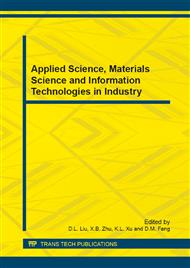p.2077
p.2082
p.2086
p.2090
p.2094
p.2099
p.2103
p.2107
p.2111
A Novel Bit-Flipping LDPC Decoder for Solid-State Data Storage
Abstract:
This paper concerns the design of high-speed and low-cost LDPC code bit-flipping decoder. Due to its inferior error correction strength, bit-flipping decoding received very little attention compared with message-passing decoding. Nevertheless, emerging flash-based solid-state data storage systems inherently favor a hybrid bit-flipping/message-passing decoding strategy, due to the significant dynamics and variation of NAND flash memory raw storage reliability. Therefore, for the first time highly efficient silicon implementation of bit-flipping decoder becomes a practically relevant topic. To address the drawbacks caused by the global search operation in conventional bit-flipping decoding, this paper presents a novel bit-flipping decoder design. Decoding simulations and ASIC design show that the proposed design solution can achieve upto 80% higher decoding throughput and meanwhile consume upto 50% less silicon cost, while maintaining almost the same decoding error correction strength.
Info:
Periodical:
Pages:
2094-2098
Citation:
Online since:
February 2014
Authors:
Price:
Сopyright:
© 2014 Trans Tech Publications Ltd. All Rights Reserved
Share:
Citation:


